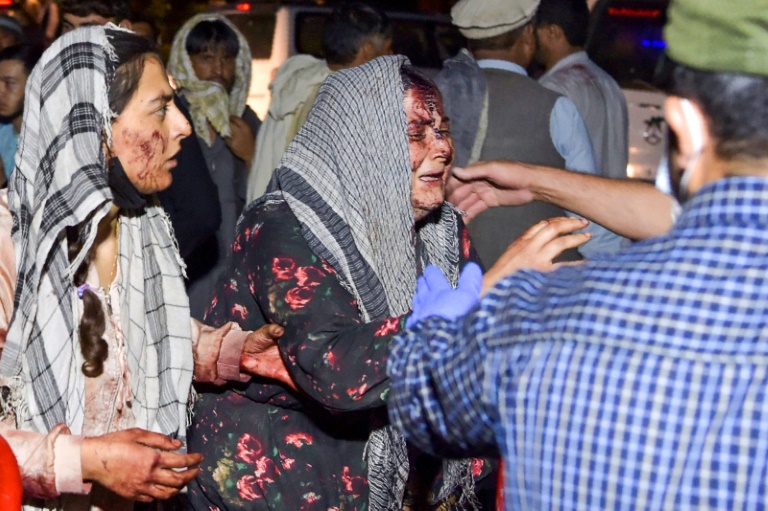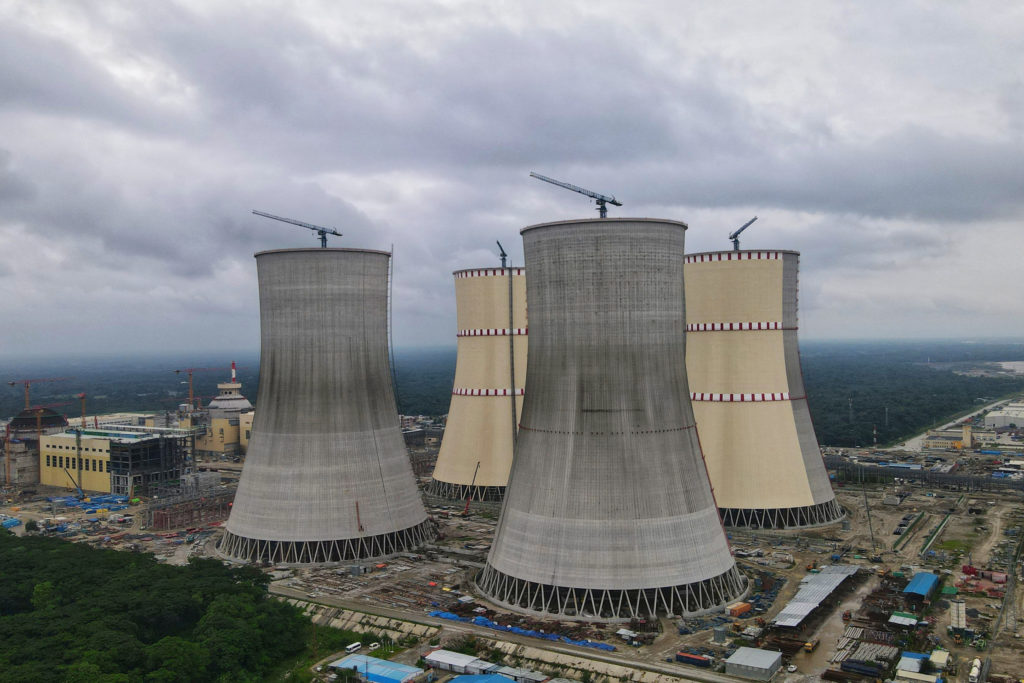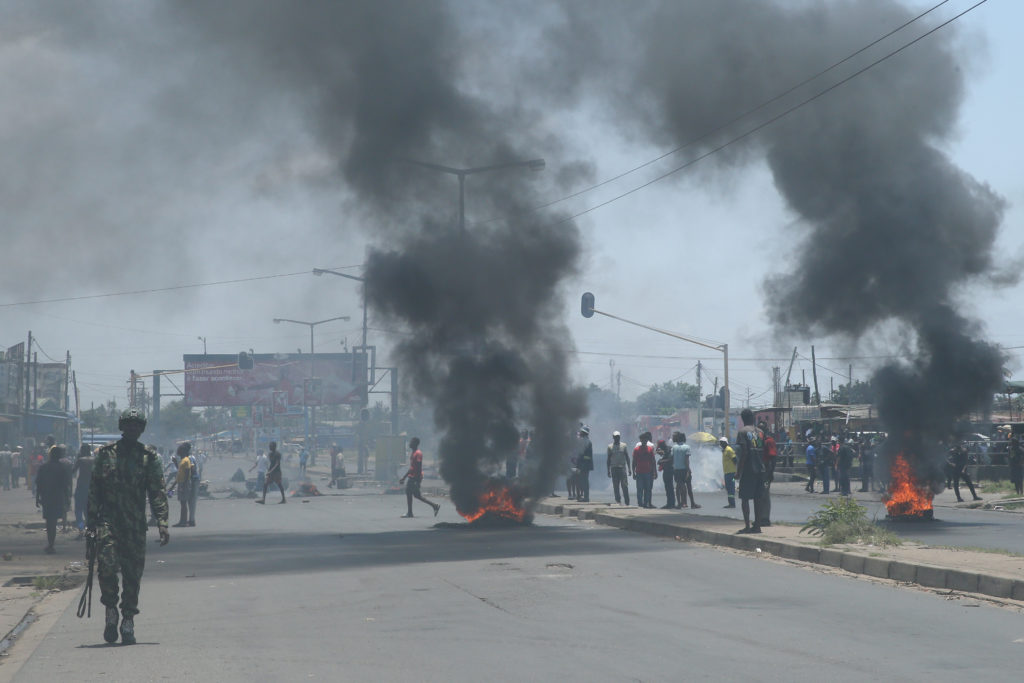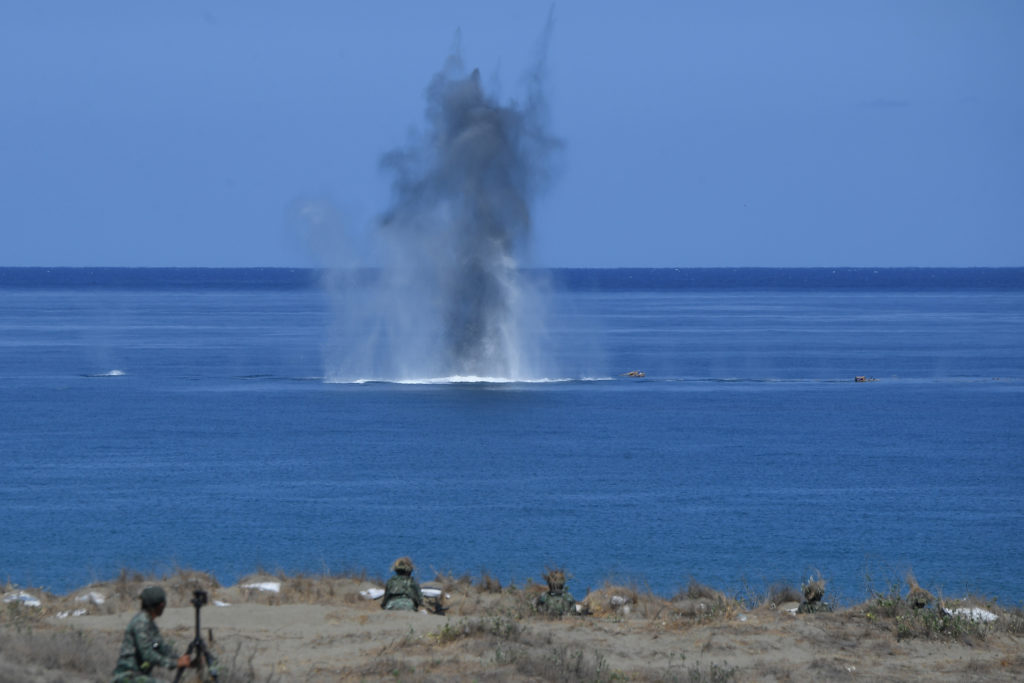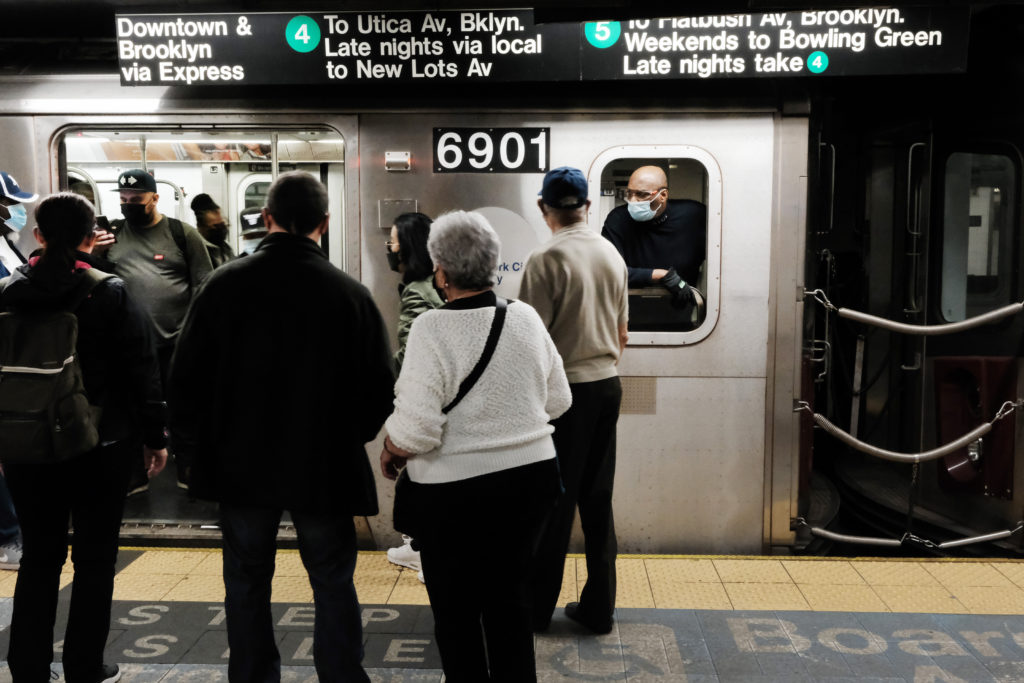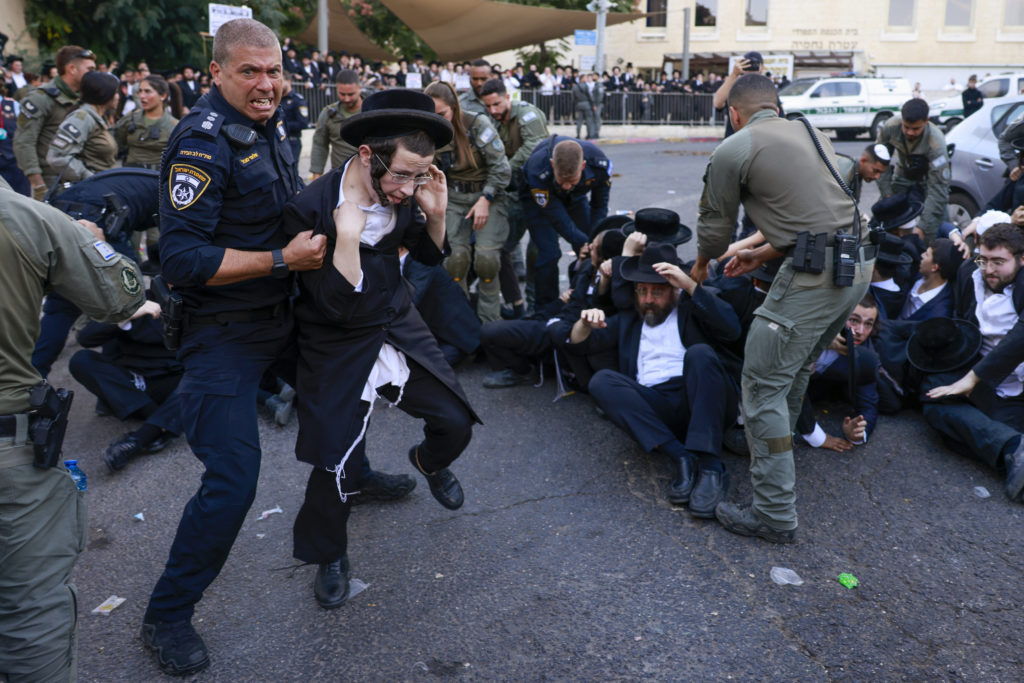Twin suicide bombs ripped through crowds outside Kabul airport on Thursday, killing at least 85 people including 13 US troops and deepening panic in the final days of an already frenzied evacuation effort from Taliban-controlled Afghanistan.
The bombings, claimed by the Islamic State group, left scenes of carnage outside the airport where thousands of Afghans desperate to flee their country had massed.
They had swarmed around the airport despite a flurry of foreign government warnings -– made just hours before — that a major terror attack was imminent.
President Joe Biden, under enormous pressure over his administration’s handling of the Afghan crisis, said the airlift would not be derailed and vowed to punish those responsible.
“We will not forgive. We will not forget. We will hunt you down and make you pay,” he said.
However Biden also insisted all American troops must leave Afghanistan and the airlift would end by Tuesday, partly due to the threat of more IS attacks.
More than 100,000 people have been flown out of the country since the Taliban swept into power on August 15, with Afghans desperate to escape the feared hardline rule of the Islamists.
On Friday morning, some evacuation flights resumed with queues of people seen lining up on the tarmac but there were no more crowds near the sites of the blasts, according to AFP reporters.
The Taliban have allowed US-led forces to conduct the airlift, while planning to finalise their own government as soon as the American troops left.
But the IS jihadists, rivals of the Taliban with their own track record of barbaric attacks in Afghanistan, were intent on capitalising on the chaos in Kabul.
– Terror, devastation –
The attackers targeted people trying to reach access gates at the airport, creating scenes of terror and devastation.
At least 72 people among the crowd were killed, as well as the 13 American troops, according to various authorities.
Wounded people in blood-soaked clothes were ferried away in wheelbarrows, as stunned survivors desperately shouted while looking for loved ones in the carnage.
One man held a semi-conscious victim by the elbow, trying to stop his head from slipping beneath the surface of the murky water.
“I will never, ever want to go (to the airport) again. Death to America, its evacuation and visas,” said Milad, who was near the first blast with his wife and three children, told AFP.
The Italian NGO Emergency said the hospital it operates in Kabul had been overwhelmed by more than 60 casualties, 16 of whom were pronounced dead on arrival.
The injured “could not speak, many were terrified, their eyes totally lost in emptiness, their gaze blank”, the hospital’s medical coordinator Alberto Zanin said in a post on the group’s Twitter account.
– ‘Bear responsibility’ –
The attacks led to the worst single-day death toll for the US military in Afghanistan since 2011.
A clearly shaken Biden went before TV cameras to address the American people about the attacks, describing the killed US troops as heroes.
Asked by a reporter if he bore any responsibility for the deaths, Biden said: “I bear responsibility fundamentally for all that’s happened of late.”
General Kenneth McKenzie, head of the US Central Command, said more Islamic State attacks were expected in Kabul.
The Taliban, which condemned the blasts, emphasised they happened in an area under US military control.
– Warnings, condemnation –
The US government and its allies had raised the alarm earlier in the day with a series of advisories warning their citizens to avoid the airport.
Australia said Friday it pulled all its troops out of Afghanistan before the bombings after receiving “very clear intelligence” of an impending attack.
Several other Western allies had already wrapped up their airlift operations, partly for logistical reasons. Britain said it would end its airlifts on Friday.
The attacks were condemned around the world, with Britain describing them as barbaric and Germany as heinous.
The United Nations called an urgent meeting of the permanent members of the Security Council for Monday.
– Islamic State threat –
In recent years, the Islamic State’s Afghanistan-Pakistan chapter has been responsible for some of the deadliest attacks in those countries.
It has massacred civilians at mosques, shrines, public squares and even hospitals.
But while IS and the Taliban are both hardline Sunni Islamist militants, they oppose each other.
“These are people that are even more extreme than the Taliban and are basically at war with the Taliban. So it is a horribly complex situation,” Australian Defence Minister Peter Dutton said.
The Taliban have promised a softer brand of rule compared with their first stint in power, which ended in 2001 when the United States invaded because they gave sanctuary to Al-Qaeda.
But many Afghans fear a repeat of the Taliban’s brutal interpretation of Islamic law, as well as violent retribution for working with foreign militaries, Western missions or the previous US-backed government.

